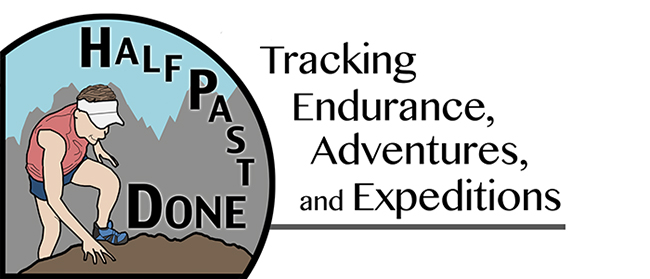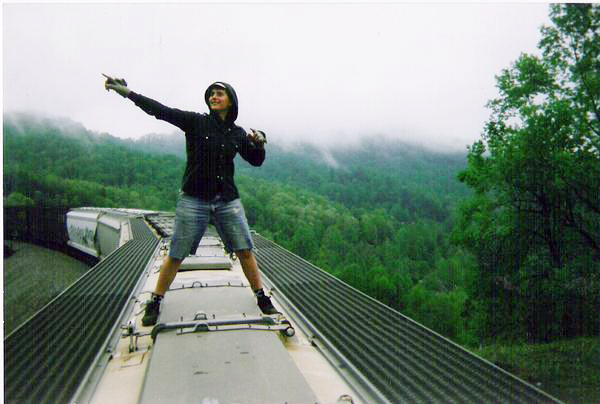The gauge of good adventure literature is how deep the story injects its readers into the adventure. Does the story hold its readers at the periphery, offering only wide-angle views of a bewildering canyon? Does it place them in an accompanying boat on a river, where they can feel the water carry them toward an intriguing horizon? Or does it lash the reader and author together in open-eyed exhilaration as they plunge into the roiling rapids of the unknown? Carrot Quinn’s small but lyrically robust memoir, “Ten Thousand Miles By Freight Train: A Memoir of Beauty and Freedom on the Rails,” is one of those rare pieces of nonfiction adventure literature in the latter category, pulling its readers deep into the unique and fascinating world of the freight train stowaway.

“In a way we were all misplaced colonizers — folks of European descent, most of us, from middle class backgrounds, at least a few of us, born hungry for something new that could be ours alone. But there was nothing left to colonize; we’d gotten as far as the Pacific Ocean, and everyone knew that was all there was. But at least we’d live by our own rules, we said, or die.”
As another damp, gray Portland winter settles in, Quinn and a friend decide to escape to a warm climate by catching a freight train to Southern California. A charismatic housemate convinces them that the trip is direct and quick, and they’d be in Los Angeles in 24 hours. They pack sleeping bags, blankets, and a few bottles of water, sneak into the train yard, and hop onto a “rideable car,” which they determined would keep them hidden. But it also had no floor, just a narrow lip of metal around the edges. As their train barrels into the Cascade Mountains through the teeth of a February storm, Quinn brings to life the gnashing metal, jarring turns, and wind blasts of a train ride that’s as far from luxury travel as a trip can be. In a simultaneous stroke of comedy and tragedy, Quinn’s sleeping bag is sucked through the bottom of the floorless car. Without any reasonable way to keep herself warm while directly exposed to the harsh winter storm and wind chill, Quinn hunkers down for a hypothermic and dehydrated ride that lasts much longer than the promised 24 hours.
After this sobering first experience, Quinn sets out to see America from the unique vantage of a fugitive hidden in a howling, unpredictable steel cage. With emotional vulnerability and often brutal honesty, she portrays the joy of watching the open country roll past, the exhilaration of wind blasting her face until she could no longer open her eyes, the helplessness of being cold, wet and unable to do anything about it, the frustrations of becoming stranded at the dead end of a line in Cincinnati, the fear of hiding from rail cops or nearly being crushed by machinery, the bemusement of the quirky and sometimes disturbing characters she meets along the way, and the intensity of falling in love with one of her travel companions. “I like the way you smell,” she tells her friend, a woman who joined Quinn on an arduous journey from North Carolina back to Portland. “You smell like traveling. You smell like home.”
Quinn’s sensual writing allows readers to smell, taste, and feel the intimate moments of her travels, while keeping an element of mystery that strengthens the allure of her journey. She also exposes the heart of her introspection and vulnerability, inviting readers to join her on a personal journey alongside the physical adventure.
“It seemed like movement was the only thing that made sense sometimes, burn through space and time as though we’d been born with more than we could possibly use. And I figured, why not? There was no place I’d rather be. We could eat up the poetry of the passing desert and know that we’d fed ourselves, and if it rained, we had a tarp. End up west just in time for crocuses and cherry blossoms and the bright wet end of the rainy season, people’s hearts exploding like they’d just been brought up from the sea floor.”
Currently available only in eBook format, “Ten Thousand Miles By Freight Train: A Memoir of Beauty and Freedom on the Rails” is $2.99 at Amazon.com.


Oh, Jill, thank you!!